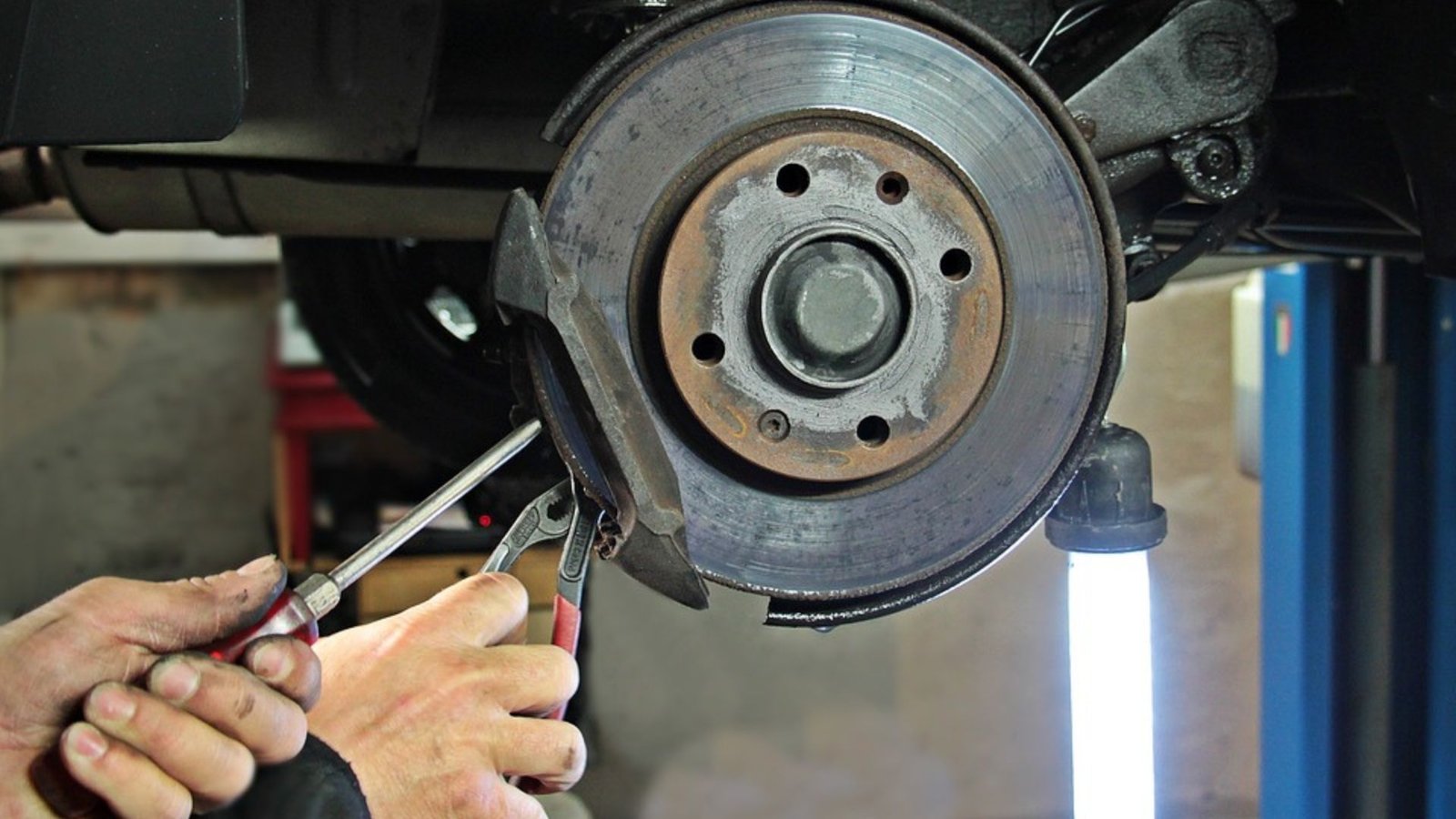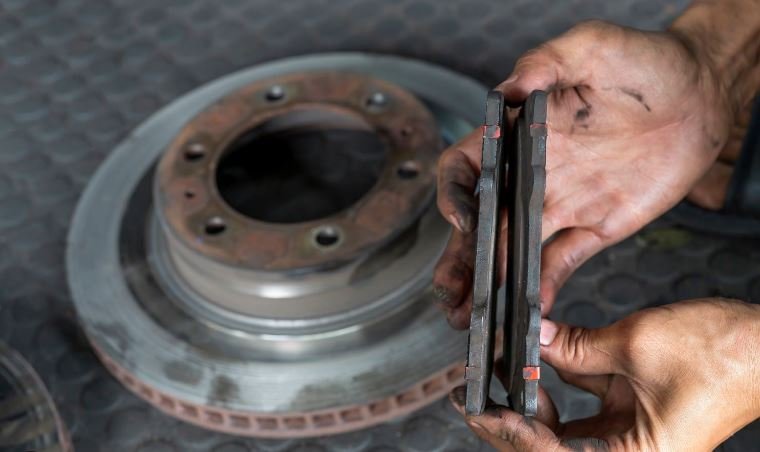Maintaining your brakes is crucial for ensuring your vehicle’s safety and performance. Good brake maintenance helps prevent accidents and extends the life of your braking system. Here’s what you need to know to keep your brakes in top condition and drive safely.

1. Regular Brake Inspections
Regular brake inspections are the foundation of brake maintenance. Have your brakes checked by a professional mechanic at least once a year or as recommended by your vehicle’s manufacturer. During an inspection, the mechanic will assess the brake pads, rotors, brake lines, and fluid to identify any signs of wear or issues. Regular inspections help catch problems early and ensure your brakes are functioning properly.
2. Check Brake Pads
Brake pads are critical for stopping your vehicle. They wear down over time, so it’s important to monitor their condition. If you notice squeaking, grinding noises, or reduced braking performance, it may be time to replace the brake pads. Many vehicles have wear indicators that make a noise when the pads are getting low. Replacing worn brake pads promptly prevents damage to the rotors and maintains effective braking.
3. Replace Brake Rotors
Brake rotors work with the brake pads to stop your vehicle. Over time, rotors can become worn or warped due to the heat and friction generated during braking. If you feel a pulsation or vibration when braking, it might be a sign that the rotors need to be replaced or resurfaced. Regularly checking the condition of your rotors and replacing them as needed helps ensure smooth and efficient braking.
4. Monitor and Change Brake Fluid
Brake fluid is essential for the hydraulic system that powers your brakes. It’s important to monitor the brake fluid level and condition. Over time, brake fluid can absorb moisture, which can reduce its effectiveness and lead to brake fade. Check the brake fluid level regularly and follow the manufacturer’s recommendations for changing it, typically every 2-3 years. Fresh brake fluid helps maintain optimal braking performance and safety.
5. Inspect Brake Lines and Hoses
Brake lines and hoses transport brake fluid from the master cylinder to the brake components at each wheel. Inspect these lines and hoses regularly for any signs of leaks, cracks, or damage. Damaged brake lines or hoses can lead to brake fluid loss and reduced braking performance. Address any issues with brake lines and hoses promptly to avoid potential brake system failures.
6. Check for Brake Warning Lights
Most modern vehicles are equipped with brake warning lights on the dashboard. These lights alert you to potential issues with the braking system, such as low brake fluid, worn brake pads, or other problems. If you see a brake warning light, have your braking system checked by a professional as soon as possible. Ignoring these warnings can lead to serious safety risks.
7. Maintain Proper Tire Pressure
Proper tire pressure is essential for effective braking. Under-inflated tires can reduce traction and increase stopping distances. Check your tire pressure regularly and maintain it according to the manufacturer’s recommendations. Well-maintained tires ensure better grip on the road and contribute to more effective braking.
8. Avoid Excessive or Hard Braking
Excessive or hard braking can cause premature wear on your brake components. To extend the life of your brakes, avoid sudden or aggressive braking whenever possible. Instead, practice smooth and gradual braking. This approach not only helps preserve your brake pads and rotors but also improves overall driving comfort and safety.
9. Use Quality Replacement Parts
When replacing brake components, always use high-quality parts that meet or exceed your vehicle’s specifications. Quality brake pads, rotors, and other components ensure better performance, durability, and safety. Avoid using cheap or generic parts, as they can negatively impact braking performance and lead to faster wear.
10. Follow Manufacturer’s Recommendations
Always follow your vehicle manufacturer’s recommendations for brake maintenance and replacement intervals. The manufacturer’s guidelines are based on the specific needs of your vehicle and ensure that you maintain optimal braking performance. Adhering to these recommendations helps prevent problems and keeps your braking system in good working order.
Conclusion
Proper brake maintenance is essential for your vehicle’s safety and performance. By regularly inspecting your brakes, checking and replacing brake pads and rotors, monitoring brake fluid, and maintaining other components, you can ensure that your braking system remains reliable and effective. Following these tips and addressing any issues promptly helps keep you and your passengers safe on the road. Remember, a well-maintained braking system is key to a smooth and secure driving experience.




